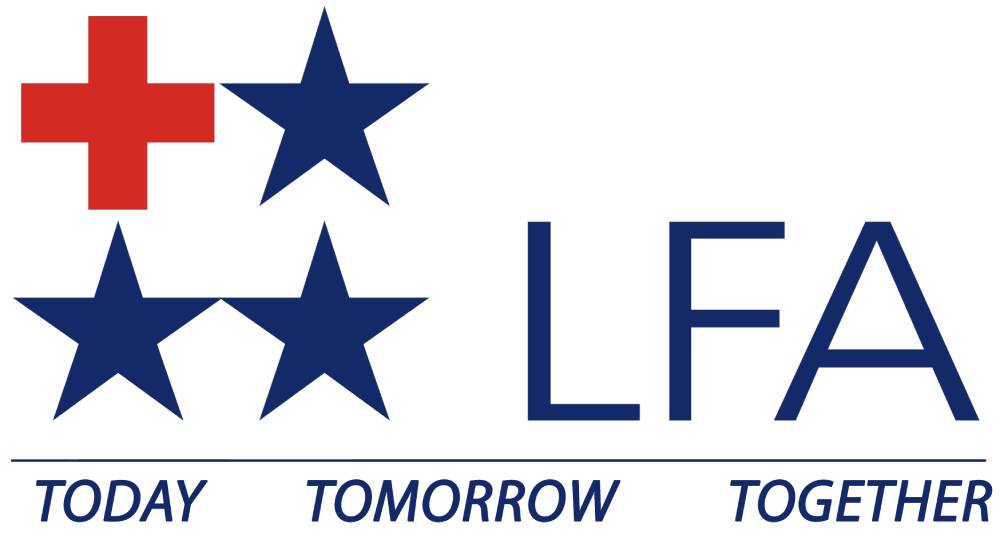Are you feeling lost in the thick of inflation, not knowing where to turn for reliable insight? If you’re not sure how to determine whether your savings account is losing money, LFA has some tips for you! As a leading fee-based Swiss wealth manager for American investors wanting to diversify their wealth outside the country, we are here to help you get familiar with other investment strategies to utilize in times of high inflation and beyond.
Having a healthy savings account is one of the most important things you can do for your future. But what are your options when inflation is eating away at those savings?
It’s true that inflation—the rising cost of goods and services—can affect your savings in a number of ways. For starters, if the interest in your savings account is lower than the current inflation rate of 8.58%, then you’re losing money. Discover more ways that inflation impacts your income and investments and explore options that remain strong to protect your nest egg.
Get started with a Swiss investment strategy for your financial portfolio.
This article discusses debt and inflation in the U.S. and answers the following questions:
- In what ways does inflation affect your income and investments?
- How can debt be a positive factor for those trying to build wealth?
- When can debt be a negative factor for investors?
- What are some international investing opportunities available to you?
- In what ways can you take advantage of the weak U.S. dollar?
- How can investing in a stronger currency like the Swiss franc help?
The pros and cons of debt in America
At the most basic level, people understand debt as a negative concept as the money you owe to someone else. However, once you learn about interest and how money works over time, you understand that debt is a valuable tool for building wealth.
Debt can be the key to building wealth or the factor that drains your nest egg, depending entirely upon how you use it. Discover how debt can be both a positive and negative factor in the following sections.
Using debt to build wealth

It’s valuable for any U.S. investor to understand debt in America, and inflation is a major factor that influences it. Much like investing, debt is a tool that can work in your favor, but only for those who put in the time and effort before getting involved.
Debt can be used to invest in a home or education, which are known to increase your earning power over time. Debt can also help you start a business when you don’t have much money saved up yet.
Ultimately, debt is considered good if it’s being used to either enhance your life or pay for something which grows in value. Real estate is a prime example of an asset you purchase with good debt, because the result is a home which may go up in value.
Here are three quintessential types of good debt.
The main categories of good debt that Americans invest in include:
- Property, houses, or other real estate:
Whether you purchased your first home or like to invest in houses and rent them out for extra income, real estate is the most common type of good debt. The average American home price is $348,079 as of 2022, so it’s easy to see why most people pay it off in small increments. At the end, the investor owns the home, resulting in a major boost in wealth since home values often appreciate.
- College and other fruitful forms of education:
Another popular investment Americans make is their college education. It’s worth noting that there’s a vast difference between the most and least expensive ways to get a college degree. The average public college education costs $10,740 for in-state residents, while private college education is $38,070.
As a result, young Americans typically take out large student loans to pay for college. This type of debt is a bit more controversial, because it’s up to the individual whether their actions are able to pay off a lofty loan. However, since it makes the investor more marketable, student loans are considered a positive investment.
- Capital for your own business:
The hard-working entrepreneur is a distinctly American archetype, and taking out a loan to start your own business is absolutely a positive form of debt. Much like student loans however, it’s strictly up to the individual and other economic factors whether or not a business becomes profitable.
Given the intrinsic reward of being your own boss and the huge positive potential of owning a business, taking out a loan to fund your business is considered a type of good debt.
The darkside of debt

If you don’t plan on paying off your debts within a reasonable amount of time, then taking on debt isn’t worth it. This could lead to snowballing debt that becomes difficult to manage and pay back, especially in times like this where inflation is particularly high.
Understandably, debt can seem like a highly-appealing option to Americans who are anxious to go to college or start their own business. However, it’s important to put deep thought into how and when you’re going to pay those loans back before taking them.
Before letting enthusiasm for taking out a loan get the best of you, remember that bad debt can ruin your credit and set you back on your quest to build wealth. Cars, trendy consumables, and anything that drops in value is considered bad debt.
Choosing the right investment strategy for inflation
If you are planning to invest in the U.S., inflation is a factor you should take into account. In addition to best practices like portfolio diversification and paying off debt, there are other strategies that safeguard your assets during turbulent times.
Today, there are three primary strategies for addressing inflation:
- Invest in high-quality bonds with a low duration and no credit risk. These will protect you from rising interest rates and lost purchasing power.
- Invest in real assets such as commodities or stocks that have historically done well during times of high inflation. Real estate is another investment that often does well in times of high inflation.
- Invest internationally through an international family office or private banking unit—this way you can avoid taxes on foreign investments and potentially benefit from another country’s more stable economy.
Where international families invest their money
International families invest their wealth in different countries, asset classes, markets, and sectors. As a result of globalization and technology, international families are able to diversify their portfolios by investing in many different countries or regions. This service is available to Americans too and it comes with many advantages.
High net-worth individuals and middle-class families alike can take advantage of stronger currencies and other international investments.
Diversifying your portfolio with international assets is a wise idea.
When strategically allocating your assets, it’s important that all of them serve a particular purpose. Some will generate income, others may be stable and reliable, and all of your chosen investments contribute to your nest egg in some way. Arguably, the main advantage of investing in overseas assets is their resilience.
For example, the Swiss franc remains a stable investment currency, while the American dollar is highly volatile.
The strength of the Swiss franc
For decades, high net-worth individuals have been taking advantage of Swiss wealth management opportunities. From putting money into Swiss bank accounts to investing in the stable franc, these are investments that come with a high level of stability. The advantages to investing in the private banks of Switzerland aren’t a secret.
The franc is widely known as a safe-haven currency, meaning it’s known to hold value even in a turbulent economy. While benefits to international investing are real and significant, the challenge for Americans has traditionally been accessing these opportunities. To remedy this, a small number of Swiss investment firms provide the service for the American market.
Are you ready to get into the global market like other wealthy investors? LFA is a Swiss-based firm that allows you to invest in European currencies and other international assets. This is a notable advantage, because very few financial advisors have the means or knowledge to help you invest internationally.
We help Americans protect their nest eggs
With the American economy in an unpredictable state, it’s crucial to know that there are investments out there that can work for you. When hiring a financial advisor is important to check whether they have professional qualifications like Master Study, CFP, or CFA.
Our team at LFA uses modern technology allowing us to maintain a family office structure in Switzerland along with valuable international investment opportunities.
Allow our connections to Swiss banks work in your favor
Whether you’re interested in decreasing your taxes or saving for retirement, our certified professionals can help. Plus, we offer a variety of international investing options that take advantage of strong European markets.
Contact us today by filling out our contact form to learn more. We look forward to hearing from you.


